Northeastern, community leaders unveil Lower Roxbury Black History Project
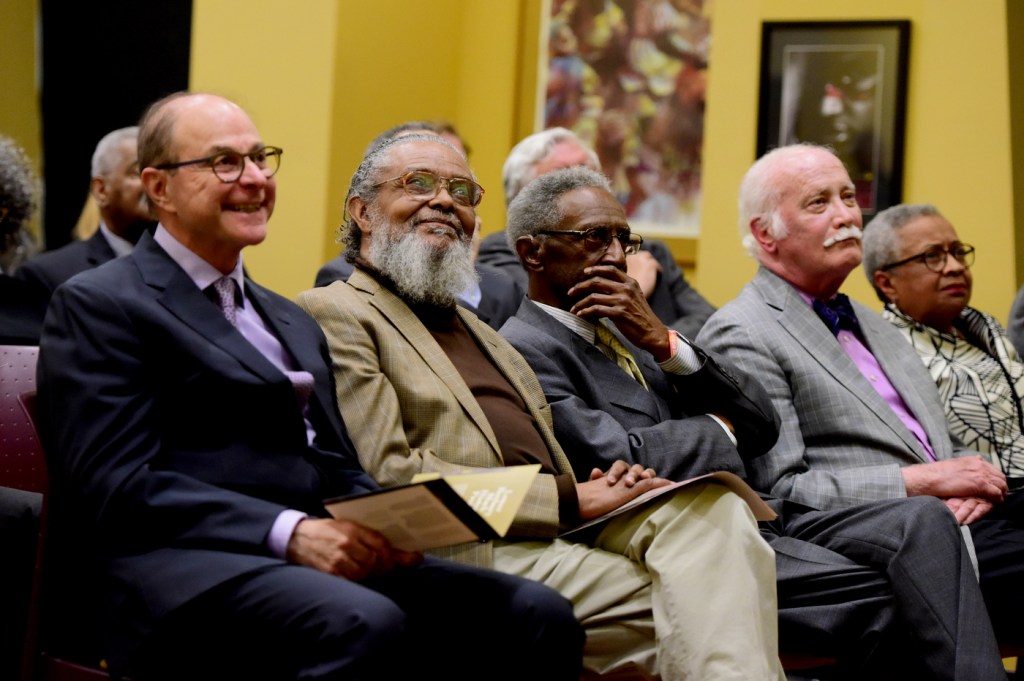
Community and university leaders, Roxbury residents, and elected officials joined together on Tuesday to unveil the Lower Roxbury Black History Project.
The project, which features oral histories and artifacts collected to tell the powerful stories of Lower Roxbury’s residents, started as an idea at a meeting between university leaders and members of the Black Ministerial Alliance in 2006. It was there that Rev. Michael E. Haynes suggested the university create a living history of the African American community in Lower Roxbury. That history is preserved in the University Libraries Archives and Special Collections and the full collection is available online.
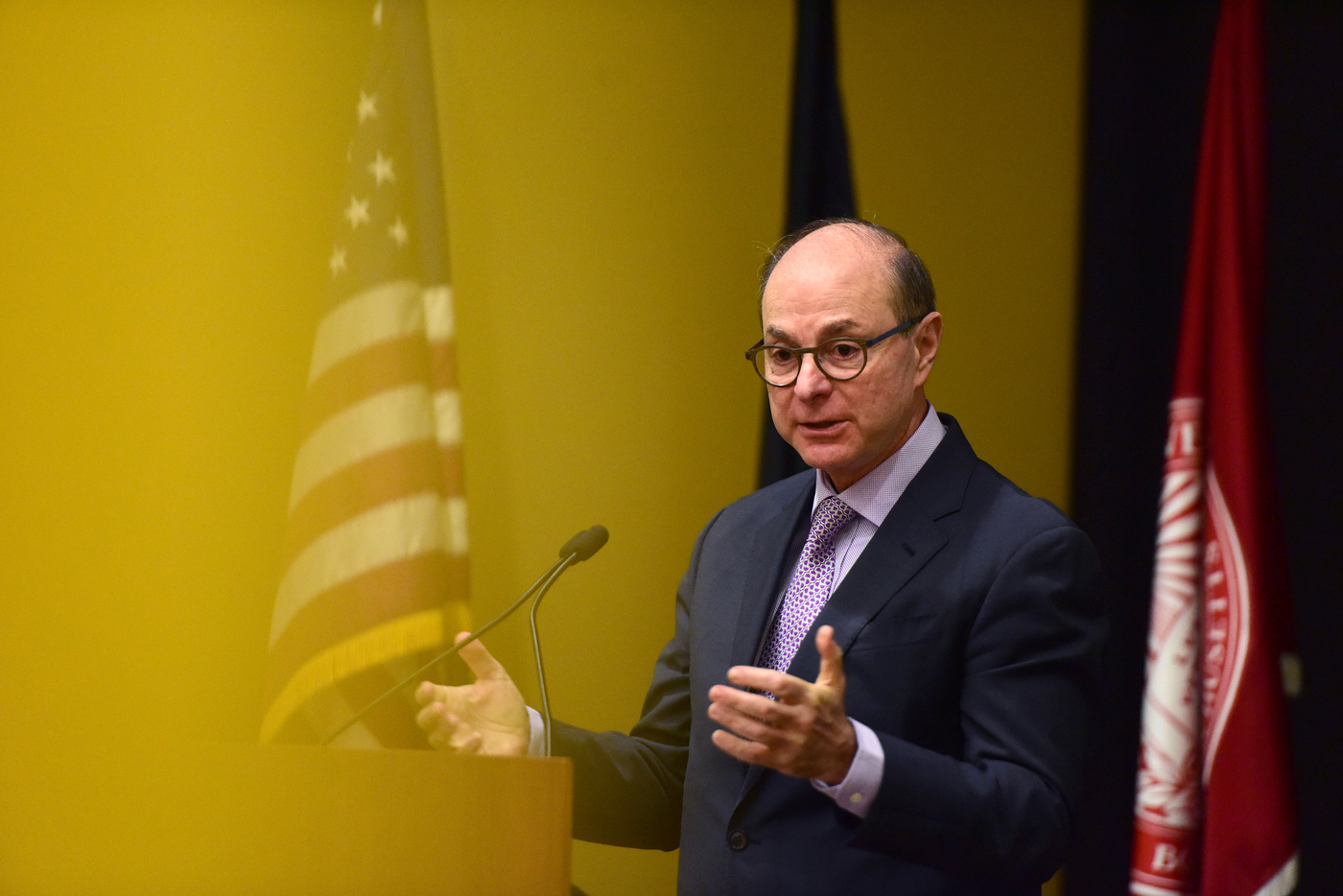
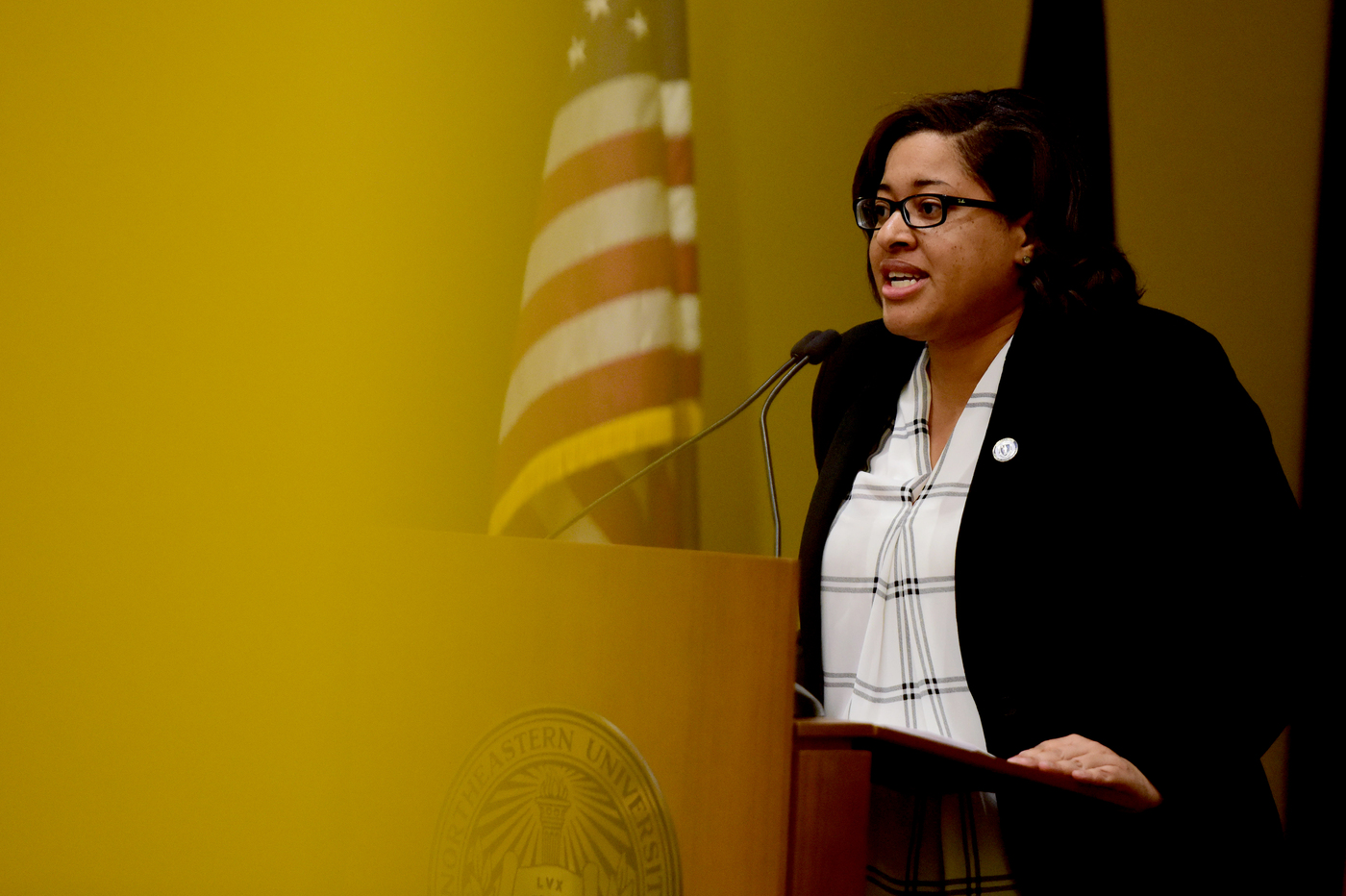
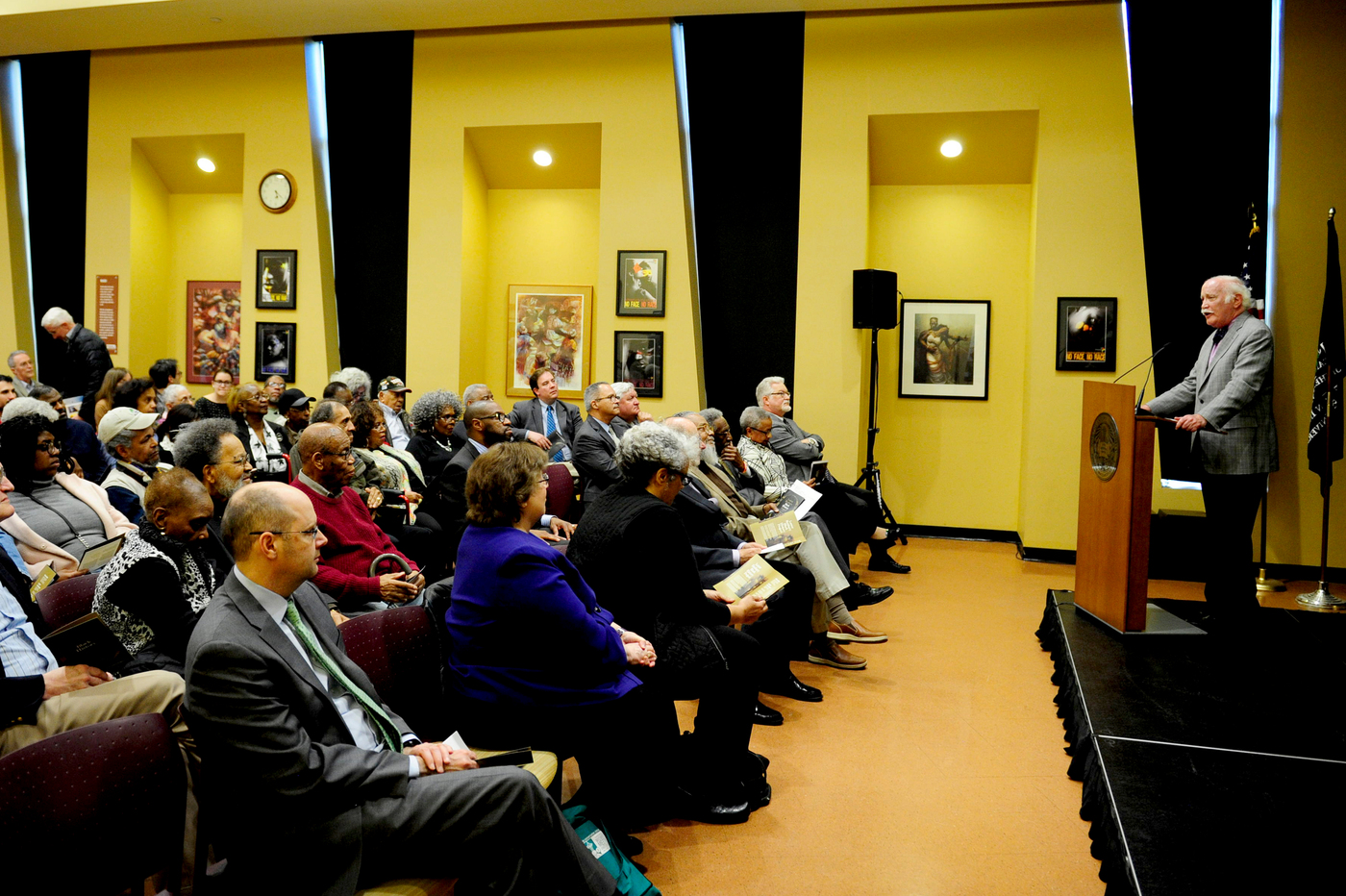
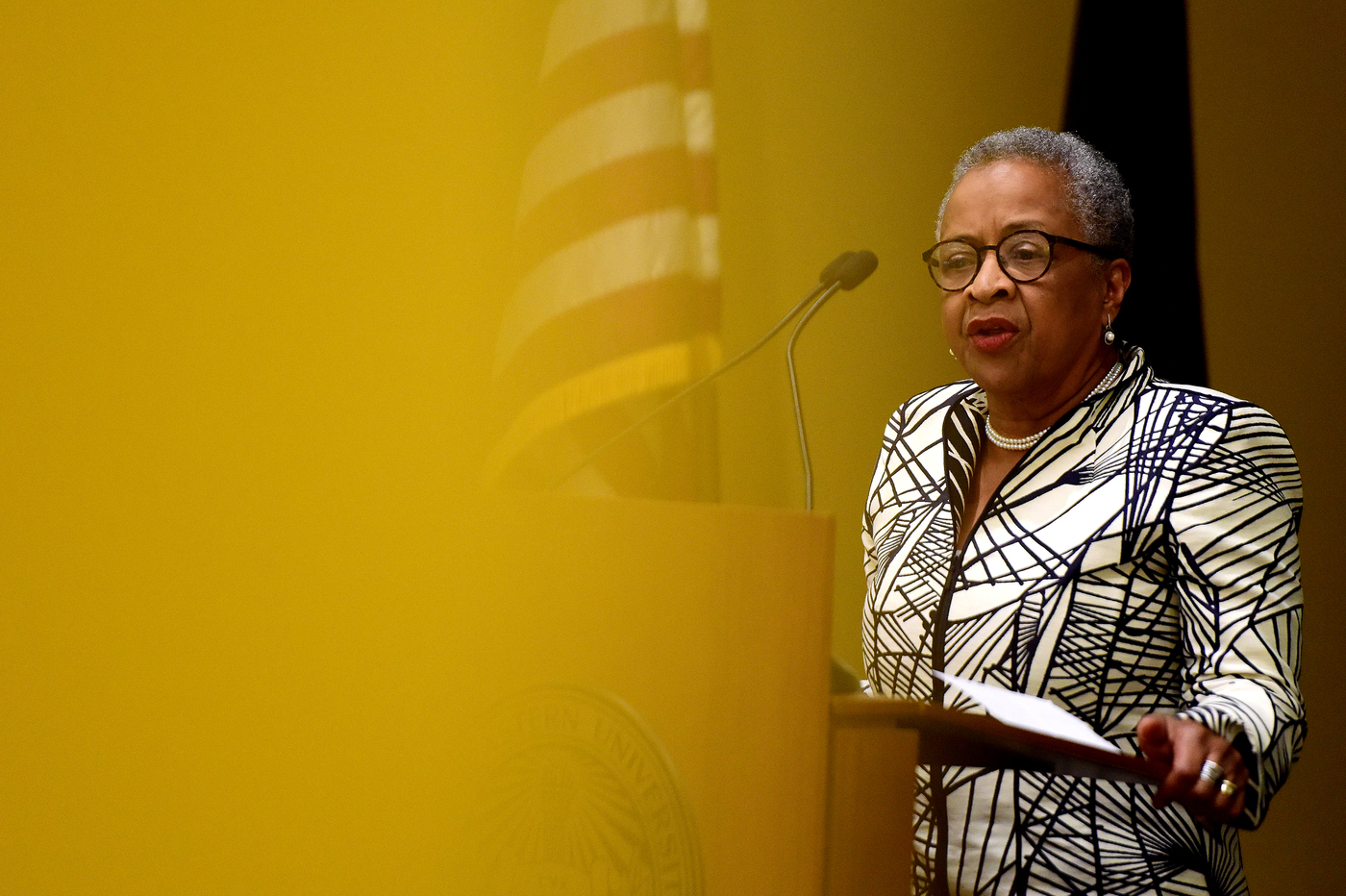
Tuesday’s celebration featured remarks from some of the project’s biggest supporters throughout the years—delivered in person and in video clips to a standing-room-only crowd at the Cabral Center—in recognition of the documentary’s newfound availability online. Though it marked a major milestone in the process of capturing the neighborhood’s rich history, President Joseph E. Aoun noted that the work is far from finished.
“What you have started here has no end,” he said, “because we have to keep looking at what’s happening now and what will happen in the future. What you’ve unleashed with us is something that has no end, and you have my commitment that we will continue this legacy.”
There’s gold in the hills
Aoun invited Haynes to the podium during his remarks to ask him a question about the meeting that started the project more than a decade ago.
“Something I didn’t ask you during our meeting (in 2006): Of all the things we could have worked on, why did you want to focus on this one?” Aoun asked.
After a thoughtful pause, Haynes, the child of Caribbean immigrants and the first family from the West Indies to buy a house on their Lower Roxbury street, replied that it was witnessing the changes to his neighborhood that impassioned him.
“The things that happened on this turf in Lower Roxbury could fill books,” he said, likening the as-yet unmined stories from Vernon Street and Massachusetts Avenue to the World War II cartoon captioned, “Boys, there’s gold in them thar hills.”
“I’m thrilled that this project has gotten a big boost, but I know the best is yet to come,” Haynes said. “There’s gold out there in Lower Roxbury.”
‘The antidote is the neighborhood’
Still, finding that gold in a city of more than 600,000 people can be daunting.
William Fowler, Distinguished Professor of History and a former advisory board member of the Lower Roxbury Black History Project, said that the antidote to that “vague,” “anonymous” quality that can appear with a large city is its neighborhoods.
“However drawn, the faces and lives of neighborhoods are not fixed; new people arrive, weaving their stories into the fabric of the neighborhood,” he said. “To grasp the history of this city, we must peer into its neighborhoods. That’s what we’re about here: preserving memories.”
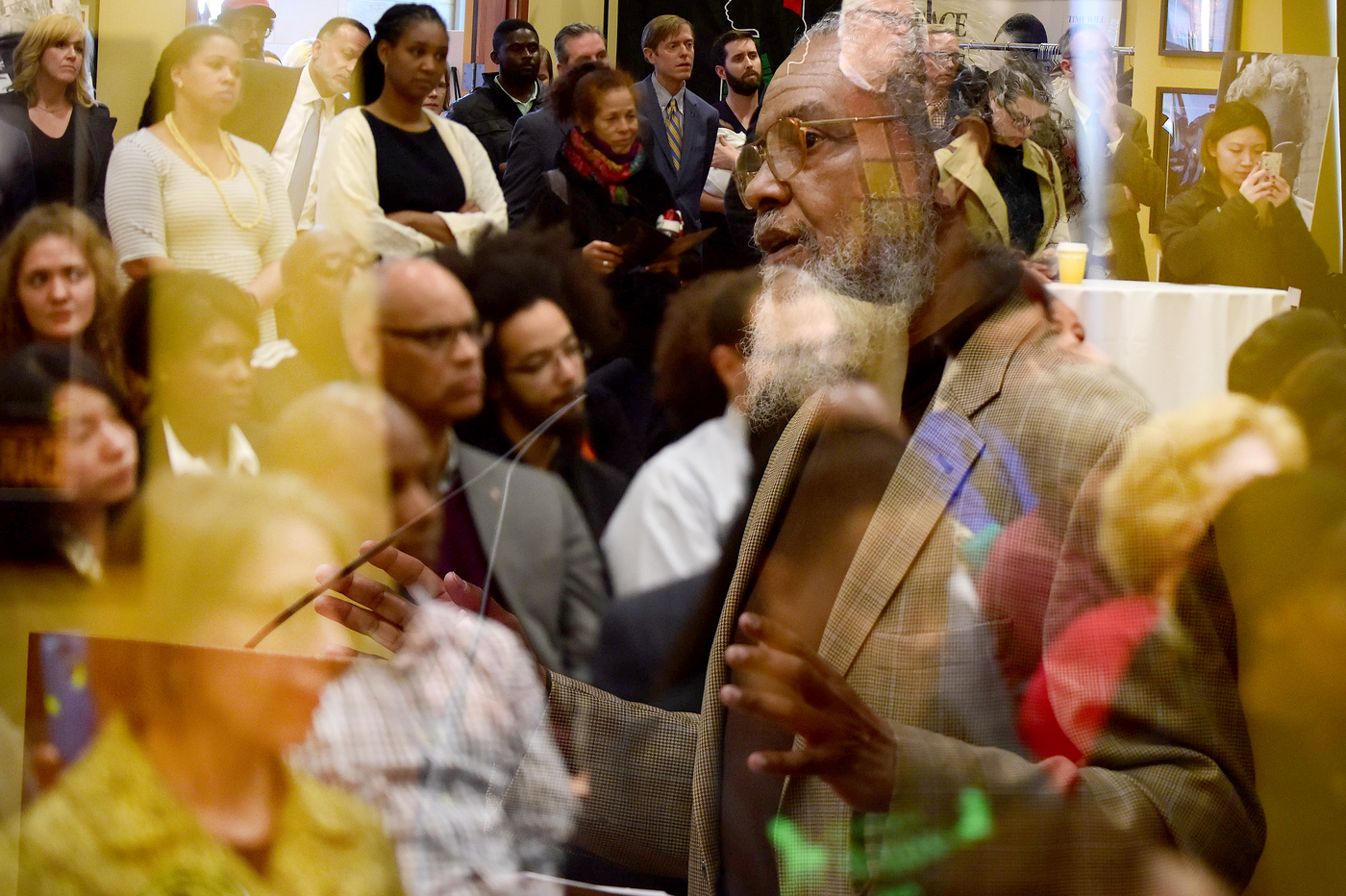
Those memories that comprise the Lower Roxbury Black History Project represent the “historic and deep relationship between Northeastern University and the Roxbury community,” said Margaret Burnham, University Distinguished Professor of law and founder of the Civil Rights and Restorative Justice Project.
“We’re here to acknowledge this project and the voices and the struggles it preserves,” she said. “We’re preserving it for future generations in our archives.”
‘The center of incredible amounts of talent and creativity’
Other attendees acknowledged the importance of archiving that rich history and making it widely available for generations to come. State Rep. Byron Rushing was among them.
“The work that we’re commemorating and celebrating today is some of the most important historic work that anyone can engage in,” he said. “Not only are we talking about a key community in the history of black people in Boston, in Massachusetts, and in New England at large, we’re talking about a community that was the center of incredible amounts of talent and creativity and that was destroyed.” Rushing continued, describing the destruction of swaths of Boston neighborhoods, including the West End and parts of Lower Roxbury, over the years.
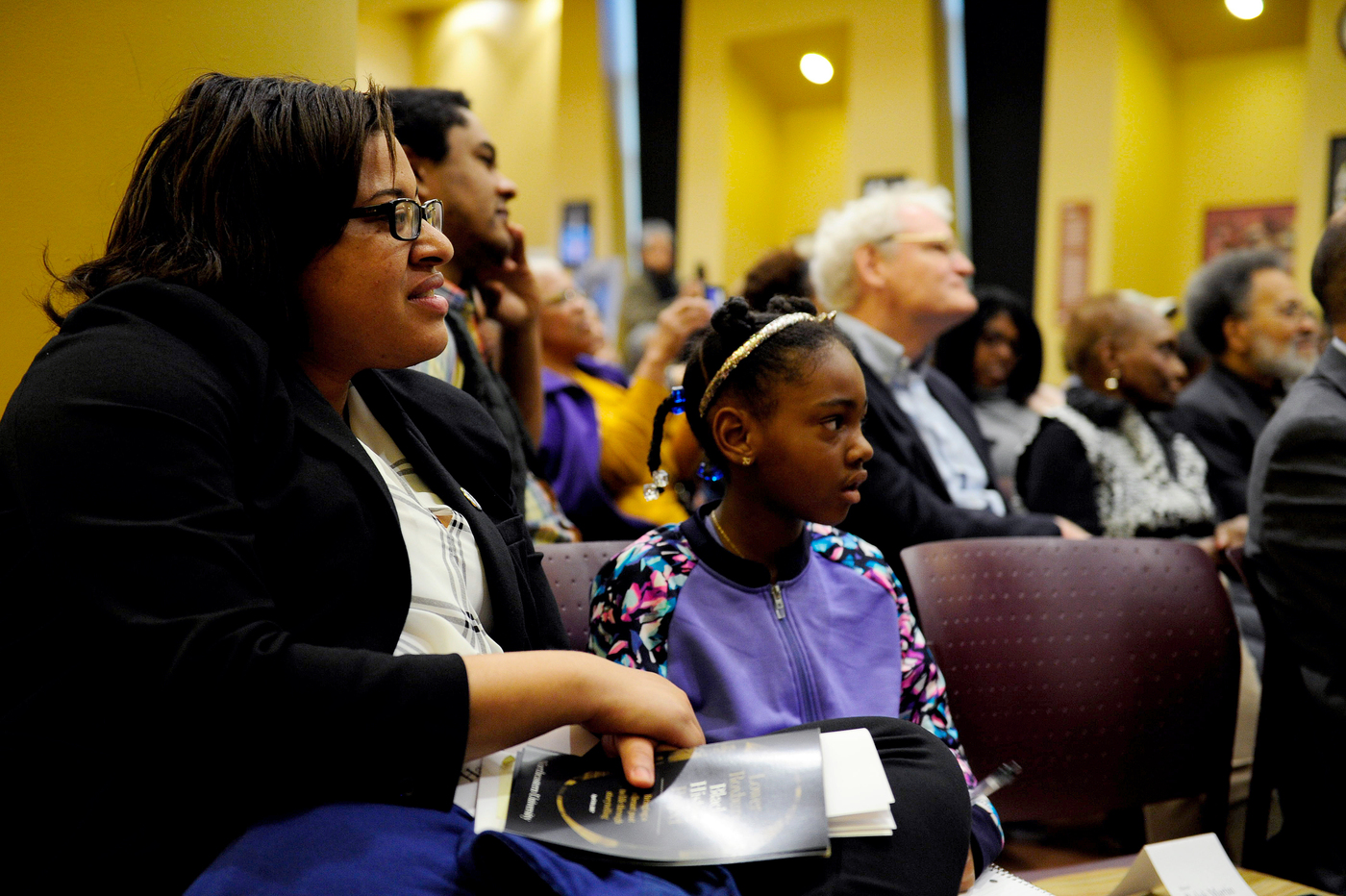
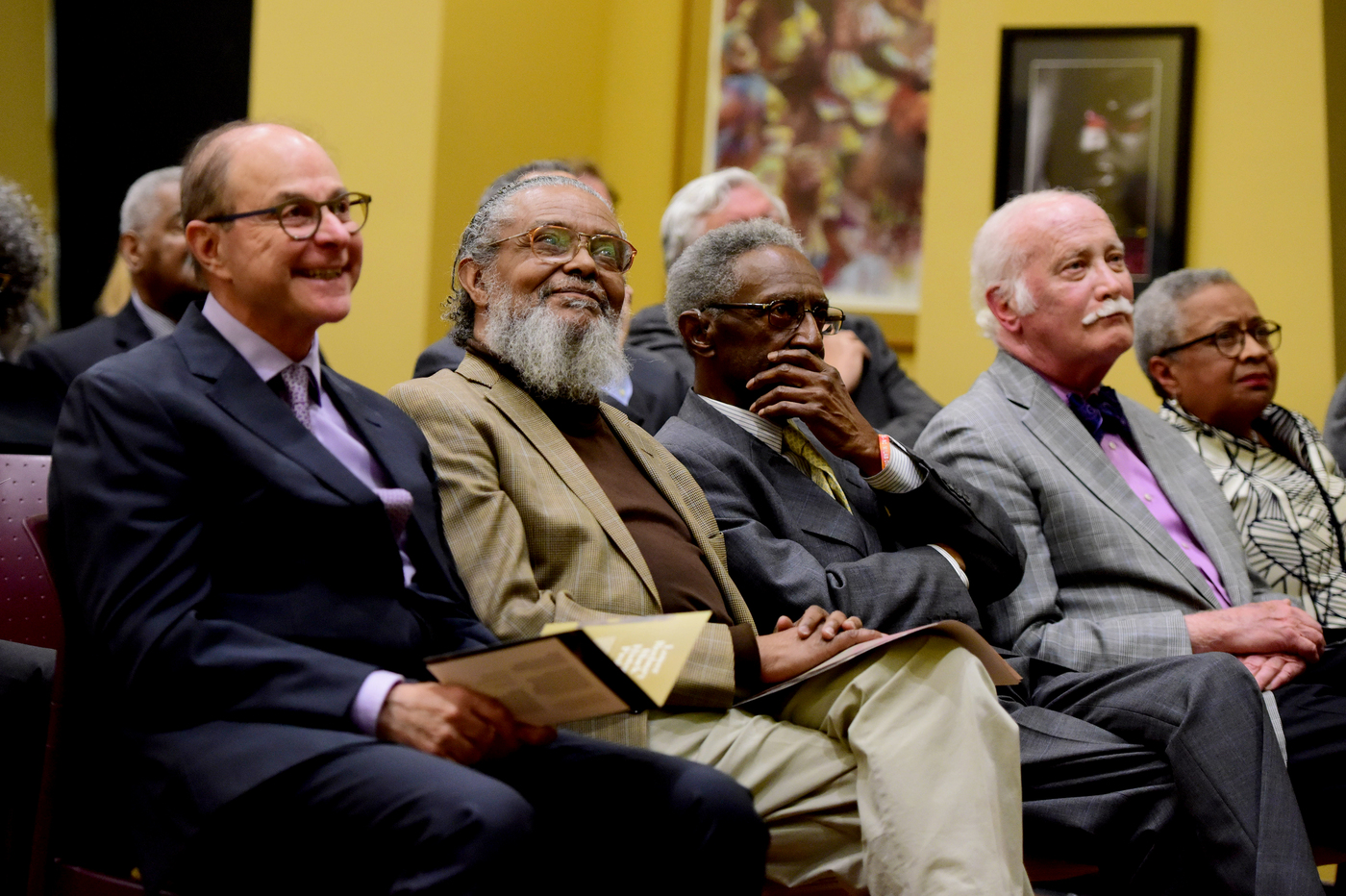
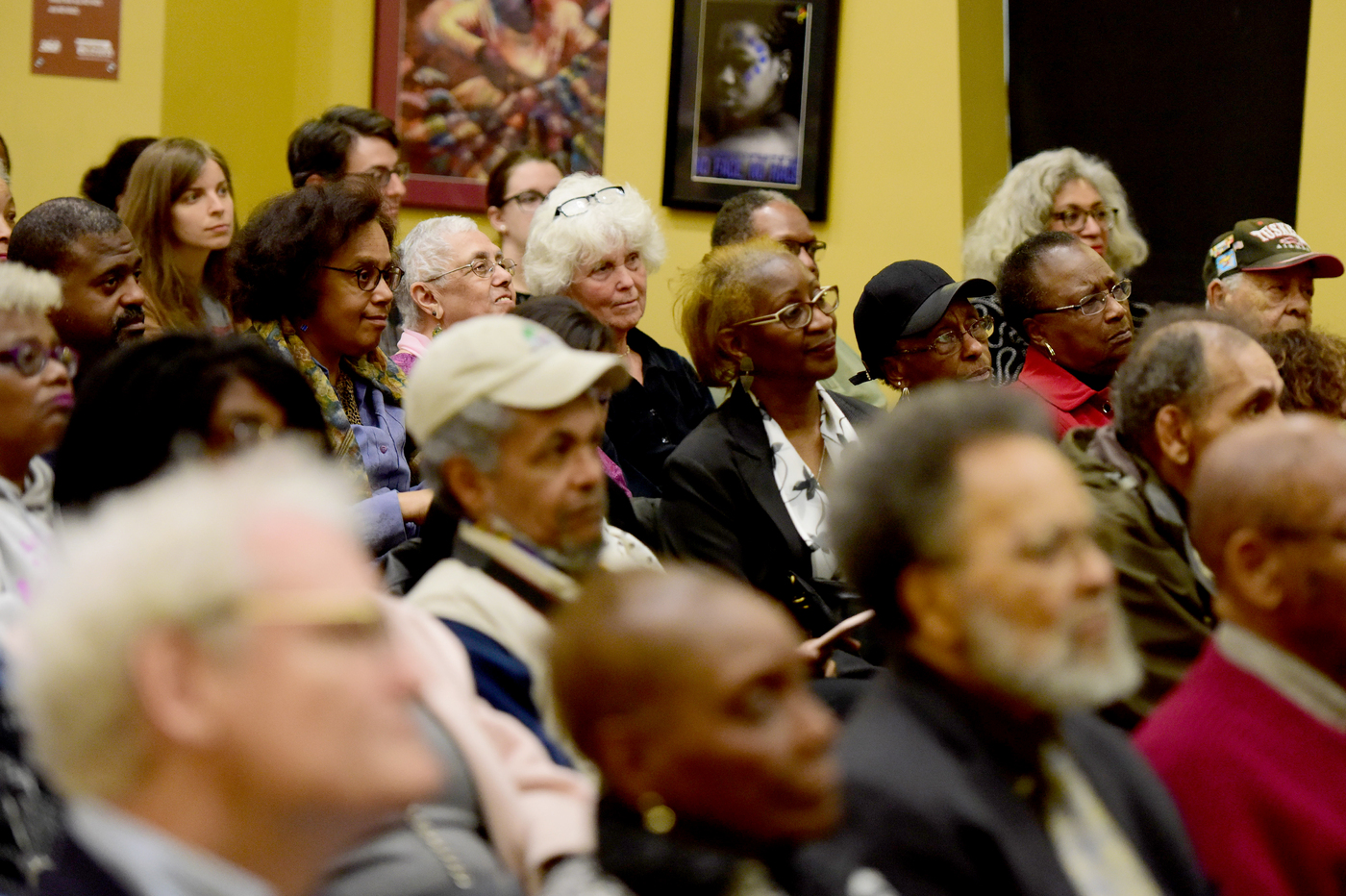
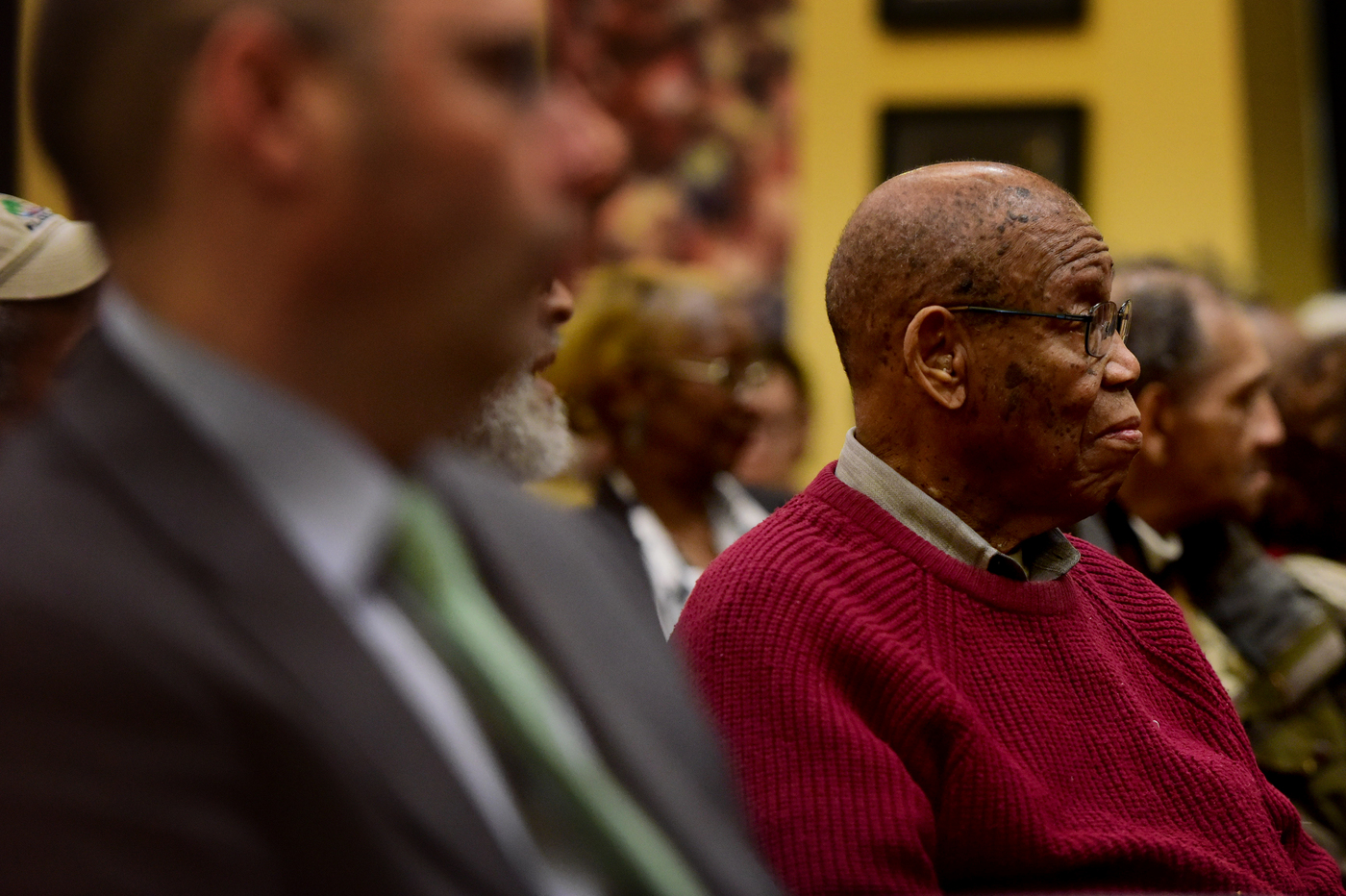
But while the buildings in Lower Roxbury had been destroyed, he said, “the people were not wiped out.”
“That history of the people is what is so essential here,” he said. “It exists in the memories of the people who lived here, and we have to collect all this material so that this community will never be forgotten.”
For state Rep. Chynah Tyler, herself a 2011 graduate of Northeastern and a fifth-generation resident of Lower Roxbury, the project has a special significance.
“I’m determined to change Boston forever, starting right here at home, right here in Roxbury,” she said. “Growing up in Roxbury was truly instrumental in creating a solid foundation for my success, and I’m prideful that I’m a product of my community. It’s so important that we document the rich history of Roxbury so future generations can have that historical context.”
Tyler’s young daughter, also in attendance Tuesday, is among those future generations.





